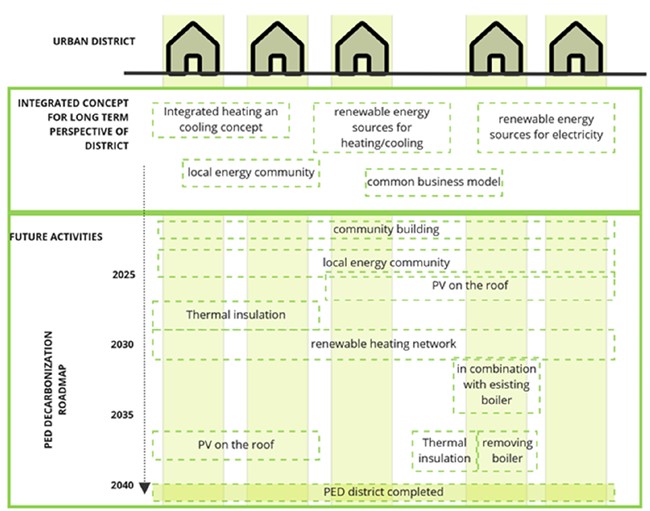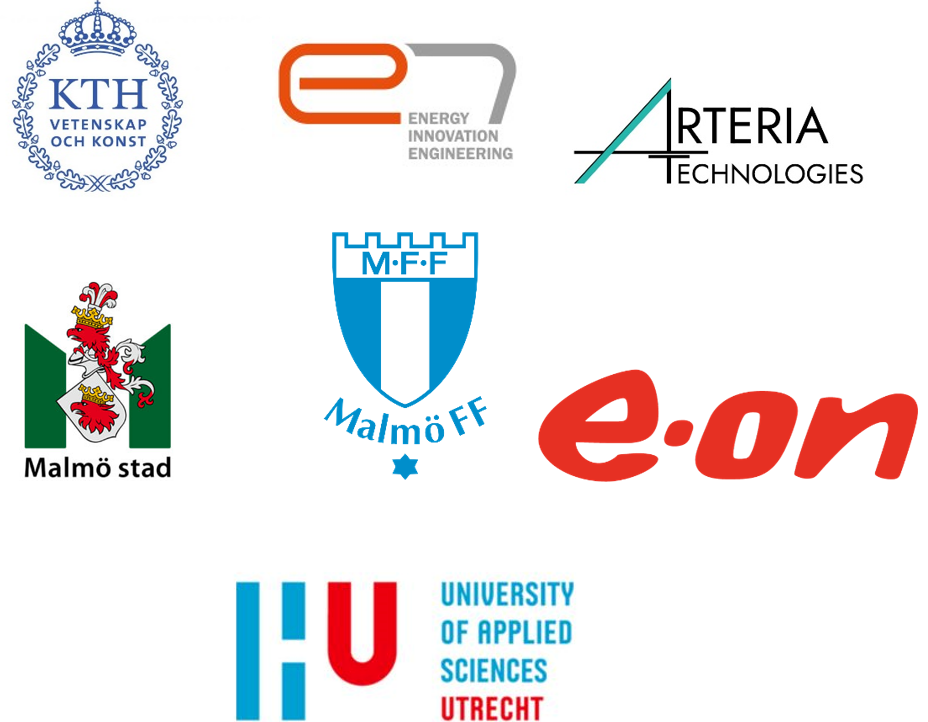PED StepWise — Participatory Step-by-Step Implementation Process for Zero Carbon District Concepts in Existing Neighbourhoods
Europe is built. We have around 2% new construction per year compared to existing buildings. Decarbonisation of existing buildings and neighbourhoods is challenging for several reasons: different stakeholders, proper timing, existing space on site, etc.
PED StepWise develops a step-by-step process that reflects the “messy” reality of the situation in existing neighbourhoods and the need to step “wisely” to develop a PED. By “wisely” we mean a process that is knowledge-based, participatory, holistic and inclusive, that does not just address technical issues but engages with citizens and other stakeholders to create zero-carbon places. From a smart grid to a wise grid.
The goals are to a) create and b) demonstrate a better & wiser process that lead to the implementation of innovative strategies for (local) generation of renewable energy, for energy flexibility, for energy efficiency and for sustainable low-carbon mobility in districts to achieve carbon-neutral PED.
The proposed process will be tested (in 3 districts), consisting of an implementation Process Map for reaching decarbonised, positive-energy, existing districts and neighbourhoods.

Background
Most existing areas consist of buildings and energy infrastructure that are under different ownerships, this makes getting agreements for implementing energy efficiency and decarbonisation investments a challenge. Buildings in a neighbourhood (even those built in the same periods) can have different levels of energy efficiency due to previous improvements, and thus the need for and interest in upgrading, or e.g. connecting to new heat networks, can vary significantly from one property to the next. Even where cost-effective solutions with short payback periods can be identified getting buy-in from owners who may have different economic circumstances and willingness to invest can be challenging. In districts that are densely populated there may not be the roof space for each individual homeowner to install solar panels, and collective or third-party infrastructure investments may need to be organised. Where centralised decarbonisation solutions are required such as district heat networks it can be hard to gain buy-in from multiple property owners, who currently have a choice of energy supplier and may not wish to sign up to long term heat supply contract with a single supply. Widespread retrofit programmes that entail changes to the physical fabric and appearance of the built environment (e.g. external insulation, PV’s etc.) can meet resistance from residents, planning departments, heritage bodies, etc.
State of the art
We will build on the experience and methodologies developed in previous JPI Urban Europe funded PED research such as PED-ID and Trans-PED. Partners in this proposal led the JPI PED Pilot project PED-ID that developed innovative approaches to stakeholder engagement and early-stage assessments. The main difference from the PED process map that was developed on PED-ID is that in this project we aim to further develop the methodology specifically for existing urban structures to be able to address the “messy reality” that existing buildings and development are often at different stages of retrofitting and that different owners may have different situations and motivations.
Aim and objectives
We aim to create a better and more inclusive transformative process, suitable existing districts and neighbourhoods, which simultaneously addresses stakeholders’ needs and aspirations whilst enabling decarbonisation and PED standards.
Project partners

Funding is provided by DUT (Driving Urban Transitions).
Timeframe: 2024-2027
Researchers
For further information about this project, please contact fargo@kth.se
References
https://dutpartnership.eu/funding-opportunities/dut_call_2022/funded-projects/ped-projects/
